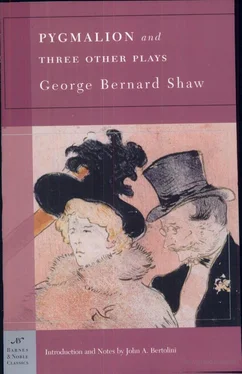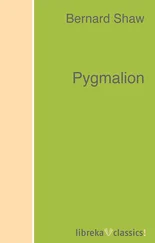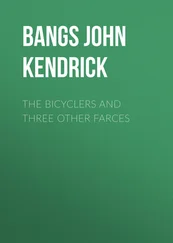B. B. Yes: I’m coming. [WALPOLE and BLENKINSOP go into the hotel]. Good-night, my dear Ridgeon [ shaking hands affectionately ]. Dont let us lose sight of your interesting patient and his very charming wife. We must not judge him too hastily, you know. [With unction] G o o o o o o o o d-night, Paddy. Bless you, dear old chap. [SIR PATRICK utters a formidable grunt. B. B. laughs and pats him indulgently on the shoulder]. Good-night. Good-night. Good-night. Good-night. [He good-nights himself into the hotel].
The others have meanwhile gone without ceremony. RIDGEON and SIR PATRICK are left alone together. RIDGEON, deep in thought, comes down to SIR PATRICK.
SIR PATRICK Well, Mr Savior of Lives: which is it to be? that honest decent man Blenkinsop, or that rotten blackguard of an artist, eh?
RIDGEON It’s not an easy case to judge, is it? Blenkinsop’s an honest decent man; but is he any use? Dubedat’s a rotten blackguard; but he’s a genuine source of pretty and pleasant and good things.
SIR PATRICK What will he be a source of for that poor innocent wife of his, when she finds him out?
RIDGEON Thats true. Her life will be a hell.
SIR PATRICK And tell me this. Suppose you had this choice put before you: either to go through life and find all the pictures bad but all the men and women good, or to go through life and find all the pictures good and all the men and women rotten. Which would you choose?
RIDGEON Thats a devilishly difficult question, Paddy. The pictures are so agreeable, and the good people so infernally disagreeable and mischievous, that I really cant undertake to say offhand which I should prefer to do without.
SIR PATRICK Come come! none of your cleverness with me: I’m too old for it. Blenkinsop isnt that sort of good man; and you know it.
RIDGEON It would be simpler if Blenkinsop could paint Dubedat’s pictures.
SIR PATRICK It would be simpler still if Dubedat had some of Blenkinsop’s honesty. The world isnt going to be made simple for you, my lad: you must take it as it is.Youve to hold the scales between Blenkinsop and Dubedat. Hold them fairly.
RIDGEON Well, I’ll be as fair as I can . I’ll put into one scale all the pounds Dubedat has borrowed, and into the other all the half-crowns that Blenkinsop hasnt borrowed.
SIR PATRICK And youll take out of Dubedat’s scale all the faith he has destroyed and the honor he has lost, and youll put into Blenkinsop’s scale all the faith he has justified and the honor he has created.
RIDGEON Come come, Paddy! none of your claptrap with me: I’m too sceptical for it. I’m not at all convinced that the world wouldnt be a better world if everybody behaved as Dubedat does than it is now that everybody behaves as Blenkinsop does.
SIR PATRICK Then why dont y o u behave as Dubedat does?
RIDGEON Ah, that beats me. Thats the experimental test. Still, it’s a dilemma. It’s a dilemma. You see theres a complication we havnt mentioned.
SIR PATRICK Whats that?
RIDGEON Well, if I let Blenkinsop die, at least nobody can say I did it because I wanted to marry his widow.
SIR PATRICK Eh? Whats that?
RIDGEON Now if I let Dubedat die, I’ll marry his widow
SIR PATRICK Perhaps she wont have you, you know.
RIDGEON [with a self-assured shake of the head] I’ve a pretty good flair for that sort of thing. I know when a woman is interested in me. She is.
SIR PATRICK Well, sometimes a man knows best; and sometimes he knows worst. Youd much better cure them both.
RIDGEON I cant. I’m at my limit. I can squeeze in one more case, but not two. I must choose.
SIR PATRICK Well, you must choose as if she didnt exist: thats clear.
RIDGEON Is that clear to you? Mind: it’s not clear to me. She troubles my judgment.
SIR PATRICK To me, it’s a plain choice between a man and a lot of pictures.
RIDGEON It’s easier to replace a dead man than a good picture.
SIR PATRICK Colly: when you live in an age that runs to pictures and statues and plays and brass bands because its men and women are not good enough to comfort its poor aching soul, you should thank Providence that you belong to a profession which is a high and great profession because its business is to heal and mend men and women.
RIDGEON In short, as a member of a high and great profession, I’m to kill my patient.
SIR PATRICK Dont talk wicked nonsense. You cant kill him. But you can leave him in other hands.
RIDGEON In B. B.‘s, for instance: eh? [ looking at him significantly].
SIR PATRICK [demurely facing his look] Sir Ralph Bloomfield Bonington is a very eminent physician.
RIDGEON He is.
SIR PATRICK I’m going for my hat.
RIDGEON strikes the bell as SIR PATRICK makes for the hotel. A waiter comes.
RIDGEON [to the waiter] Myi bill, please.
WAITER Yes, sir.
He goes for it.

In Dubedat’s studio. Viewed from the large window the outer door is in the wall on the left at the near end. The door leading to the inner rooms is in the opposite wall, at the far end. The facing wall has neither window nor door. The plaster on all the walls is uncovered and undecorated, except by scrawlings of charcoal sketches and memoranda. There is a studio throne (a chair on a dais) a little to the left, opposite the inner door, and an easel to the right, opposite the outer door, with a dilapidated chair at it. Near the easel and against the wall is a bare wooden table with bottles and jars of oil and medium, paint-smudged rags, tubes of color, brushes, charcoal, a small lay figure, [157] Life-size dummy with movable limbs.
a kettle and spirit-lamp, [158] Lamp that burns volatile liquid fuel such as alcohol, sometimes in conjunction with a container, for heating substances.
and other odds and ends. By the table is a sofa, littered with drawing blocks, sketch-books, loose sheets of paper, newspapers, books, and more smudged rags. Next the outer door is an umbrella and hat stand, occupied partly by Louis’ hats and cloak and muffler, and partly by odds and ends of costumes. There is an old piano stool on the near side of this door. In the corner near the inner door is a little tea-table. A lay figure, in a cardinal’s robe and hat, with an hour-glass in one hand and a scythe slung on its back, smiles with inane malice at Louis, who, in a milkman’s smock much smudged with colors, is painting a piece of brocade which he has draped about his wife. She is sitting on the throne, not interested in the painting, and appealing to him very anxiously about another matter.
MRS DUBEDAT Promise.
LOUIS [putting on a touch of paint with notable skill and care and answering quite perfunctorily] I promise, my darling.
MRS DUBEDAT When you want money, you will always come to me.
LOUIS But it’s so sordid, dearest. I hate money. I cant keep always bothering you for money, money, money. Thats what drives me sometimes to ask other people, though I hate doing it.
MRS DUBEDAT It is far better to ask me, dear. It gives people a wrong idea of you.
LOUIS But I want to spare your little fortune, and raise money on my own work. Dont be unhappy, love: I can easily earn enough to pay it all back. I shall have a one-man-show next season; and then there will be no more money troubles. [Putting down his palette] There! I mustnt do any more on that until it’s bone-dry; so you may come down.
MRS DUBEDAT [throwing off the drapery as she steps down, and revealing a plain frock of tussore silk] [159] Heavy brownish silk fabric.
But you have promised, remember, seriously and faithfully, never to borrow again until you have first asked me.
Читать дальше













